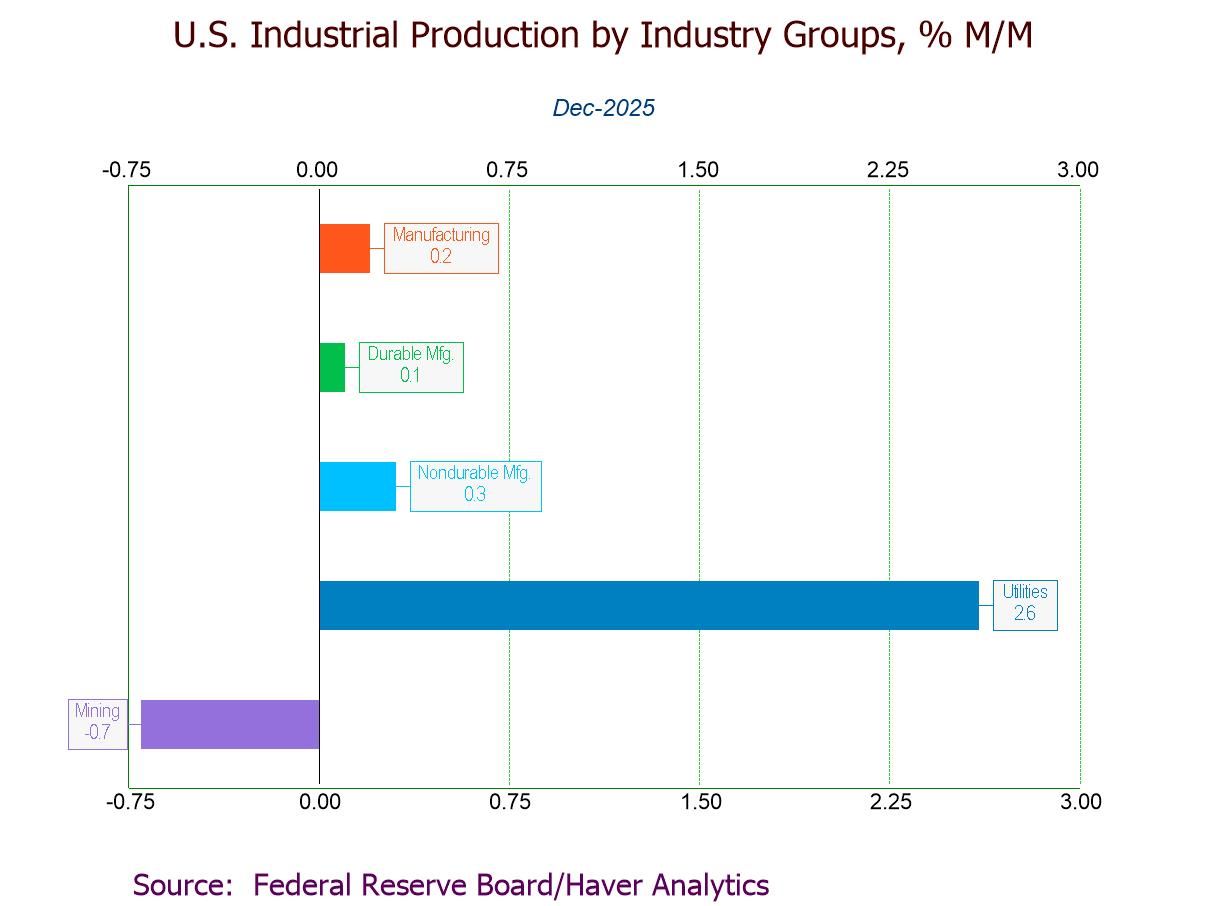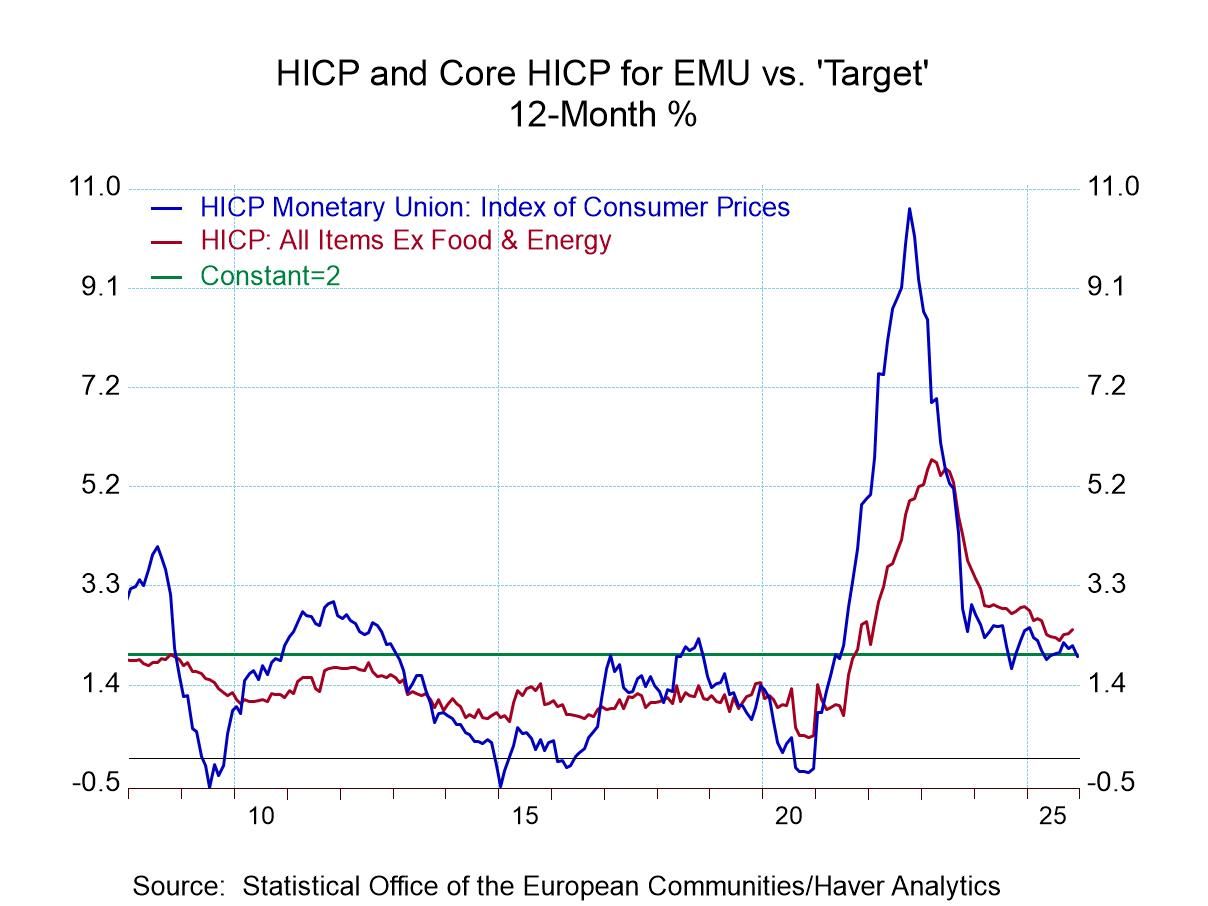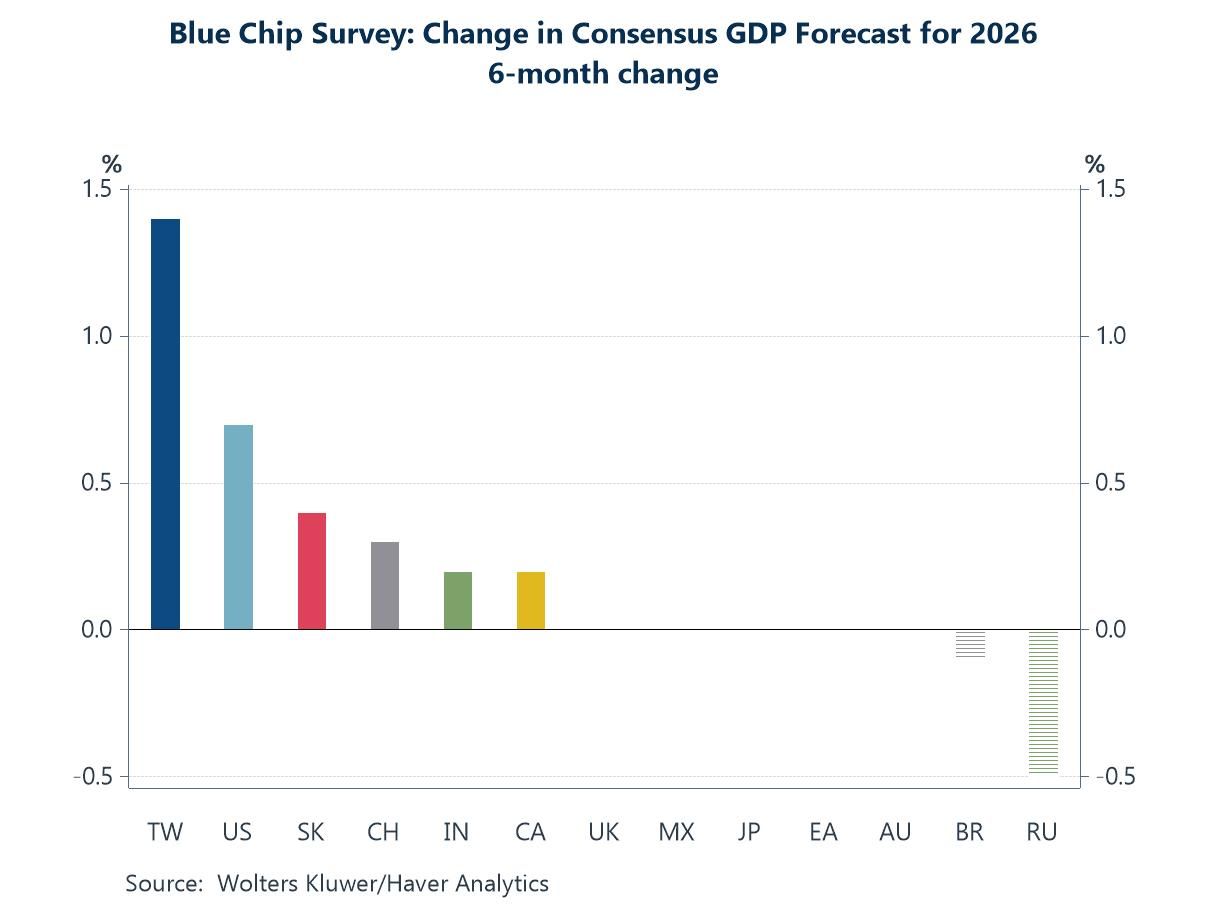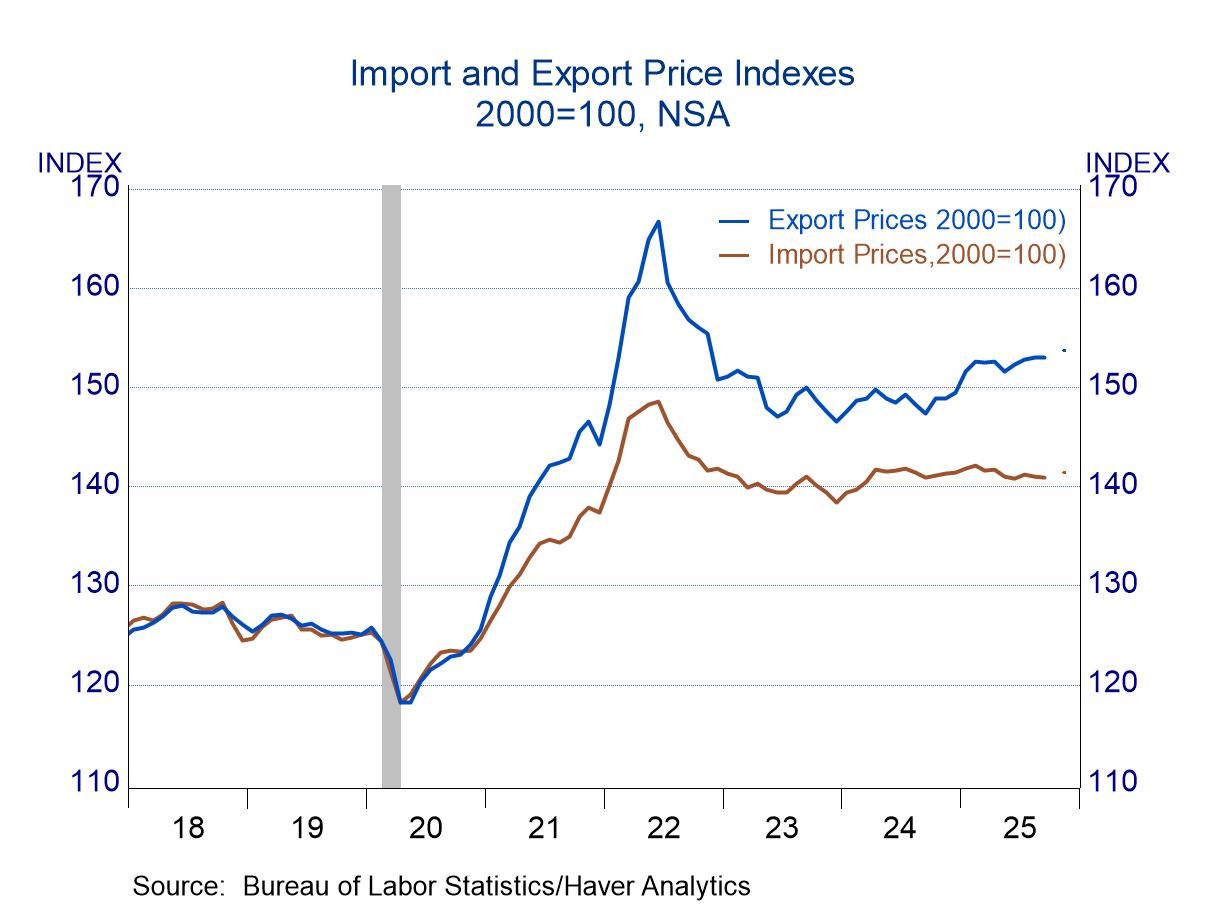 Global| Jun 11 2009
Global| Jun 11 2009U.S. Business Inventory Decumulation Remains Strong and Steady
by:Tom Moeller
|in:Economy in Brief
Summary
As worried as they are about the sales environment, businesses have taken the practice of shedding their inventories at the fastest rate in nearly thirty years. Total business inventories fell another 1.1% during April, down for the [...]
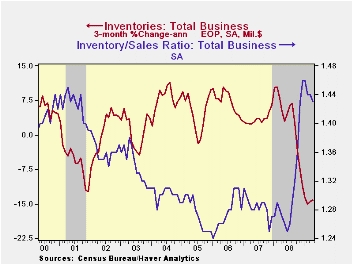
As worried as they are about the sales environment, businesses have taken the practice of shedding their inventories at the fastest rate in nearly thirty years. Total business inventories fell another 1.1% during April, down for the eighth straight month. These declines have given rise to a three-month decumulation rate of 14.1%. That is near the strongest in the series' history which dates back to 1980. The recent cutback in inventories is in reaction to an 8.3% rate of decline in business sales, though that rate of decline has eased a bit lately.
The troubling factor behind this equation is that the strong inventory cutbacks have done little to reduce the inventory/sales ratio which, at 1.43, was near its highest level since the recession of 2001. Emphasizing the magnitude of the inventory back-up is the increase in the I/S ratio during the last year, which is the swiftest since 1982 and it's still near its high. The rise ended a twenty-eight year downtrend.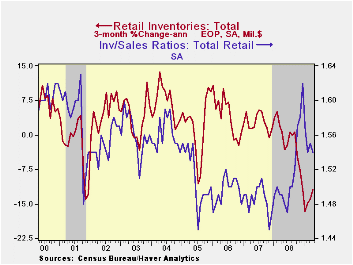
Retailers cut inventories by 1.0% in April and at an 11.9% annual rate during the last three months, nearly the fastest in the series' history. Motor vehicle inventories continued to lead the decumulation and fell at a 26.6% rate during the last three months. Recent inventory cutbacks, along with some stabilization of sales, finally is working to lower the inventory-to-sales ratio for automobiles to where it was during the Spring of 2008.
Outside of autos, retailers continued to reduce the levels of unwanted products. Furniture, home furnishings & electronics inventories fell just slightly during April (9.7% y/y) but the rate of decline appears to be easing. Conversely, apparel retailers haven't backed off at all from their efforts to reduce unwanted inventory. Over the last three months they're down at a 12.7% annual rate, the swiftest on record. General merchandise inventories rejoined the trend toward reducing stores of unwanted products. Inventories fell 0.6% in April after a slight March increase and they're off at a 6.3% annual rate during the last three months. The cuts in inventory accumulation have gone some distance in reducing the inventory-to-sales ratio for the nonauto retail sector, but it still remained high.
The business sales and inventory data are available in Haver's USECON database.
The Systemic Importance of Consumer Protection is today's speech by Fed Governor Elizabeth A. Duke and it is available here.
Inventory Accelerator In General Equilibrium from the Federal Reserve Bank of St. Louis can be found here.
| Business Inventories (%) | April | March | February | Y/Y | 2008 | 2007 | 2006 |
|---|---|---|---|---|---|---|---|
| Total | -1.1 | -1.3 | -1.4 | -6.6 | 0.6 | 4.0 | 6.4 |
| Retail | -1.0 | -0.9 | -1.2 | -8.5 | -3.1 | 2.5 | 3.3 |
| Retail excl. Auto | -0.5 | -0.3 | -0.5 | -4.4 | -1.8 | 2.7 | 4.7 |
| Wholesale | -1.4 | -1.8 | -1.7 | -6.2 | 3.1 | 6.2 | 8.2 |
| Manufacturing | -1.0 | -1.2 | -1.3 | -5.1 | 2.1 | 3.7 | 8.2 |
Tom Moeller
AuthorMore in Author Profile »Prior to joining Haver Analytics in 2000, Mr. Moeller worked as the Economist at Chancellor Capital Management from 1985 to 1999. There, he developed comprehensive economic forecasts and interpreted economic data for equity and fixed income portfolio managers. Also at Chancellor, Mr. Moeller worked as an equity analyst and was responsible for researching and rating companies in the economically sensitive automobile and housing industries for investment in Chancellor’s equity portfolio. Prior to joining Chancellor, Mr. Moeller was an Economist at Citibank from 1979 to 1984. He also analyzed pricing behavior in the metals industry for the Council on Wage and Price Stability in Washington, D.C. In 1999, Mr. Moeller received the award for most accurate forecast from the Forecasters' Club of New York. From 1990 to 1992 he was President of the New York Association for Business Economists. Mr. Moeller earned an M.B.A. in Finance from Fordham University, where he graduated in 1987. He holds a Bachelor of Arts in Economics from George Washington University.



